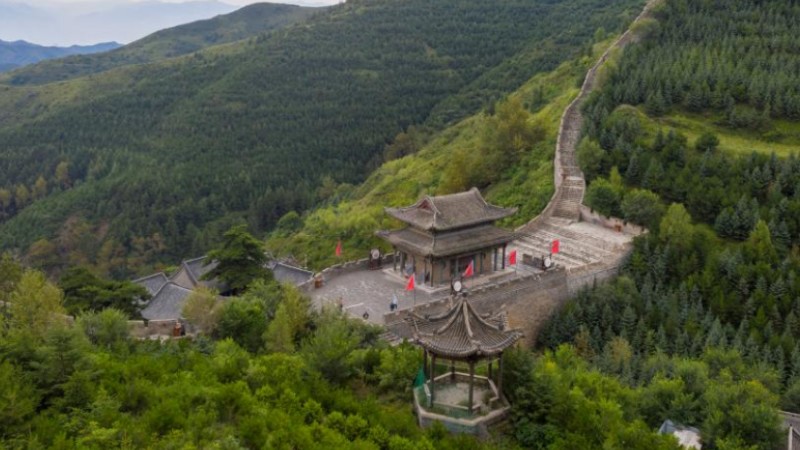County in C China's Hubei thrives on medicinal herb
Laifeng county, Enshi Tujia and Miao Autonomous Prefecture, central China's Hubei Province, has intensified efforts to develop vine tea, a Chinese medicinal herb, blazing a trail to prosperity.
Scientifically known as Ampelopsis grossedentata, vine tea can be used as both food and medicine. Many parts of the plant, such as the young stems, can be used to make tea, and the Tujia people refer to it as "longevity tea."

A farmer picks vine tea at a plantation base in Laifeng county, Hubei Province. (Photo/Enshi Evening News)
The county has aimed at building a vine tea industrial cluster with output worth over 10 billion yuan ($1.38 billion). Home to a planting area of 86,300 mu (5,753.33 hectares) of vine tea, the county has developed 69 kinds of related products which fall into four categories, with an annual output worth of 1.2 billion yuan, according to Li Wei, Party secretary of Laifeng county.
Years ago, Xiang Bangui, a technician dispatched to the county, found that wild vine tea has a good therapeutic effect on curing vertigo. Then he sent some samples to China Pharmaceutical University for cultivar identification and component analysis. And results showed that the plant contains the highest natural levels of selenium and flavonoid.
In 2000, Xiang started to collaborate with Huazhong Agricultural University and Hubei Minzu University, and three years later, they successfully cultivated the plant, and named it Fengming Vine Tea. In 2008, Xiang developed a new planting technique, which not only improved survival rates, but also reduced costs.
Xiang's success brought benefits to many local villagers. Yang Kui, a man with disabilities from a once registered poor household, started to cultivate the seedlings of the plant on over 10 mu of land with the help of the local government in the winter of 2014. He transferred 135 mu of land in the next year to plant vine tea, and established a cooperative in 2015. Now, his family owns processing factories, with an annual profit of over 1 million yuan, and his thriving business has provided job opportunities for 50 once-impoverished villagers.
"I earn 80 yuan a day by weeding at the planting base, and during harvest season, I earn over 150 yuan a day by picking vine tea," said Tan Juxiang, who was once plagued by poverty. Tan added that she earned over 20,000 yuan annually by working at the cooperative.
A company also invested over 50 million yuan in new production lines for disinfectants and toothpaste in 2020, being capable of producing 150 tonnes of flavonoids, 20 million tubes of toothpaste, 3 million bottles of disinfectants, 60 million teabags, and high-end solid beverages every year.
The vine tea cultivation is likewise boosting the integrated development of agriculture, tourism, research and camping, with a comprehensive industrial chain taking shape.
Photos
Related Stories
- German students experience traditional tea culture in China
- Trending in China | Chinese tea's many scrumptious snacks
- Chinese tea culture event organized in Myanmar
- Moscow tea exhibition held in Russia
- Thriving tea industry brings wealth to locals in Enshi, C China's Hubei
- Tea-drinking China embraces African coffee
- Event of Chinese tea culture held in Madrid
Copyright © 2023 People's Daily Online. All Rights Reserved.









